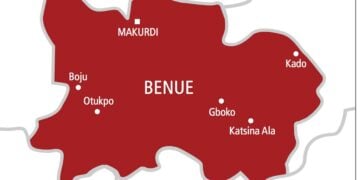The Federal Ministry of Health, civil society organisations (CSO) and other agencies have called for increased taxation on Sugar Sweetened Beverages (SSBs) and appropriate earmarking of tax revenues, as a means of reducing non-communicable diseases (NCD) prevalence in the country.
The stakeholders made the call yesterday in Abuja at an inter-agency workshop on SSB tax.
In his goodwill message, the executive director, Corporate Accountability and Public Participation Africa (CAPPA), Akinbode Oluwafemi, said, “SSBs have become an increasingly prevalent part of our daily lives, contributing to a range of health problems such as obesity, diabetes, and cardiovascular diseases. As advocates, we recognise the urgent need to implement effective measures to address this growing public health crisis.
He, however, said while the N10 per litre tax imposed on SSB through the Finance Act 2021 is commendable, stakeholders have observed that it was ineffective and inadequate.
“Also, the government needs to work to increase the tax to a minimum of N20 per litre,” he added.
On her part, the ministry’s director/head, public health department, , Dr. Moranike Alex-Okoh, said the the institution of the SSB tax had been identified as the most effective way of reducing the consumption of sugar sweetened beverages consequently reducing the incidences and prevalence of NCDs.
She expressed concern over the trend of overconsumption of SSB among adolescents which can lead to childhood obesity and negative health consequences in adulthood.
“Diabetes mellitus, hypertension and other non-communicable diseases (NCDs) are the leading cause of death globally and account for a substantial proportion of deaths in Nigeria. NCDs affect the highly productive populations thereby posing a huge danger to the physical and mental well-being of the citizens, health care system, socio-economic development and consequently undermining national development,” Alex-Okoh said.
“Nigeria loses a lot of money annually to the loss of productivity due to NCDs and incur cost on treatment and management of these chronic diseases.” She added.
She said the tax revenue is to be earmarked for public health interventions towards the prevention and control of NCDs.
On the advantages of the SSB tax, the executive secretary of Osun Health Insurance Agency, Adeniyi Ogini, said It increases the fiscal space for health and makes funds available for targeted interventions in addressing NCDs.
“The current NHIA Law 2022 seeks to provide healthcare for 83 million vulnerable Nigerians. The SSBs tax can form part of the revenue sources for the funding of this, which, if well implemented, will push Nigeria forward in her quest to achieve universal health coverage (UHC) for her citizens,” she said.











